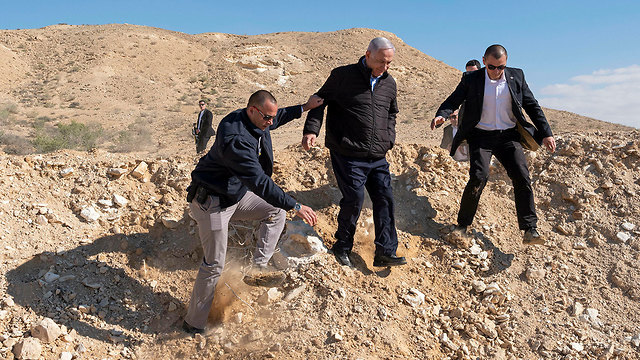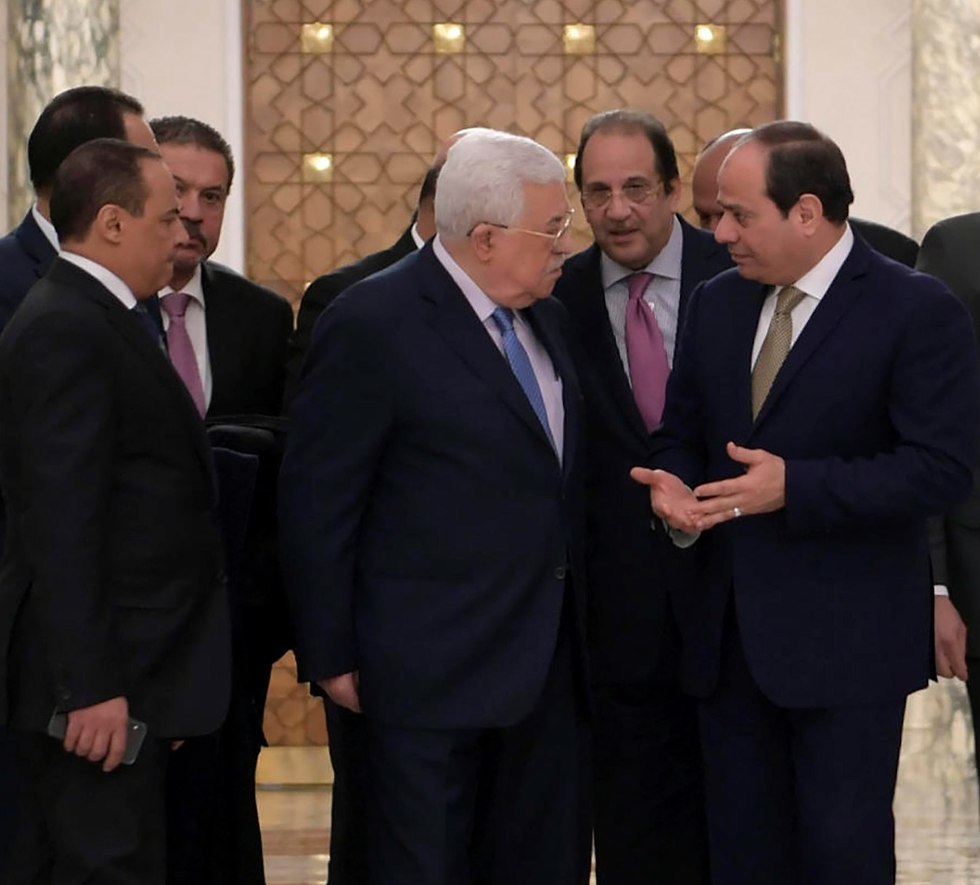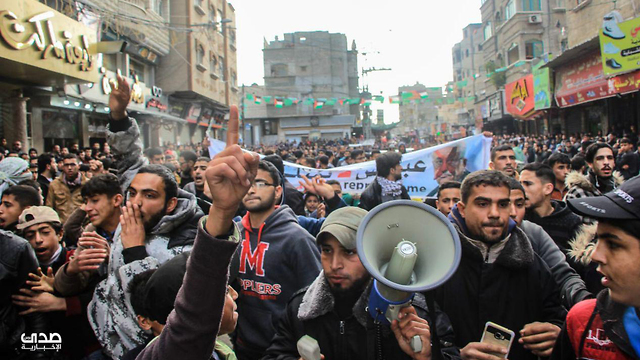This last weekend was not the first time that an Egyptian delegation was in Gaza while a rocket barrage was fired at Israel. It has actually happened twice in the not-too-distant past, the most famous of which was in October 2018, when rockets were fired at a Be'er Sheva home.
President Abdel Fattah el-Sisi and the Egyptians are walking the line - on one hand, they are trying to broker an agreement between Israel and Hamas; on the other, they have not forgotten Hamas' ties to the Muslim Brotherhood, which Sissi despises.
This time, however, real progress is being made. An Egyptian military-intelligence delegation visited Israel, according to the Saudi news outlet Independent Arabia, and later met with Shin Bet chief Nadav Argaman in Cairo. "We had 70 percent of it (the agreement) in the bag," one of the members of the Egyptian delegation told me. But then came news of two missiles fired at the Tel Aviv area from Gaza, catching the Egyptians by surprise.

Hamas, Egypt and Israel decided to accept that the launch – of rockets that have a range of 70 kilometers and that are only in the hands of Hamas and Islamic Jihad - was carried out "by mistake." No one is really buying it, and in Gaza it has been known that Hamas leader Yahya Sinwar intends to try the two who launched the rockets, to save face with the Egyptians. In Israel, the consensus is that at best he will send them to jail only to be released a few days later.
The rocket fire came at a bad time for Hamas, for Egypt and for Israel. The only ones to benefit from this entire incident were Hamas's main political rivals, Fatah, who are based in the West Bank. Palestinian President Mamhoud Abbas, who heads Fatah, has kept mum, but one of his people even leaked a somewhat spurious claim that Argaman had direct talks with Hamas deputy politburo chief Mousa Abu Marzook when he went to Cairo, mediated by the Egyptian intelligence chief Abbas Kamel.
It's hard to believe that this happened, given Israel's policy that its officials do not sit in the same room as Hamas — or even on the same floor of a hotel for that matter. Furthermore, the report was published only in the Independent Arabia by a reporter whom no one knows, which raises the suspicion that this was "fake news" from Ramallah.
And now, it is as if no rockets were ever fired on Thursday night. The security cabinet met in Tel Aviv to decide that they would continue indirect negotiations with Gaza. A message was sent to Egypt, whose delegation is going back to Gaza to pass on the Israeli demands for calm. The Egyptians also have to deal with the demands from Hamas, which include, among other things, an increase in aid from $15 million to $30 million per month and an increase in the supply of electricity.
The requests are reasonable, but they do leave a sour taste in the mouth. Israel must ensure that this financial aid does not end up in the pockets of Hamas and its associates. It also knows that if it says "no" to everything, the Iranians will step in, with the help of their Gazan friends in Islamic Jihad. They are just waiting for the opportunity.
Hamas also has to deal with the fallout from a series of massive handouts from Qatar. For when the citizens of the Gaza Strip saw that the money was going the Hamas leadership, who were also enjoying a fine supply of electricity to their own houses, they took to the streets in protest – and this time it was not Israel that was the focus of their anger.
But Hamas is still the sovereign power in the Gaza Strip, and for now it appears to have no viable replacement. This means that Israel must continue with efforts to reach an agreement with the terror group.
And here is the irony. With Egyptian help, Israel can reach understandings for calm with Gaza, despite the lack of a direct channel with Hamas. In the West Bank, where the purportedly friendlier Fatah is in charge, it is more complicated, at least until the 83-year-old Abbas is replaced.




















